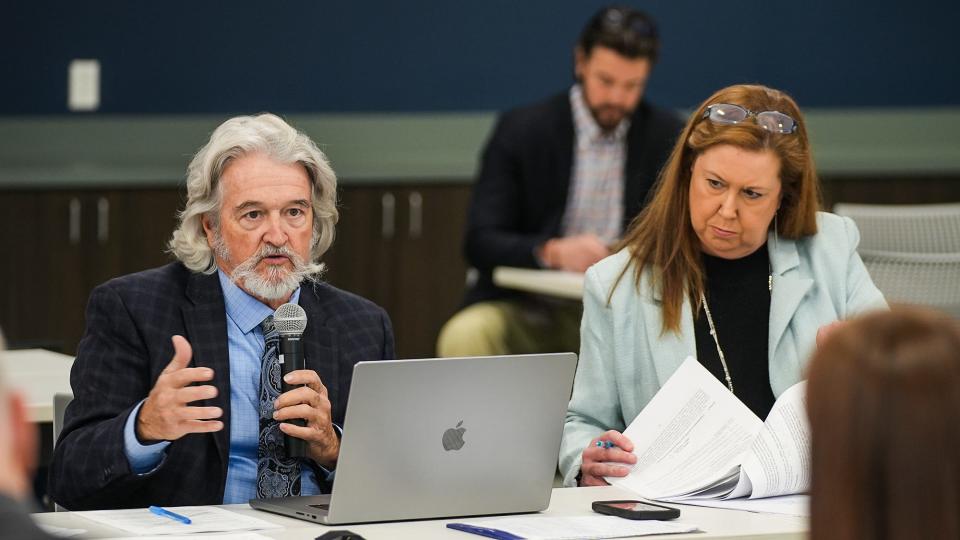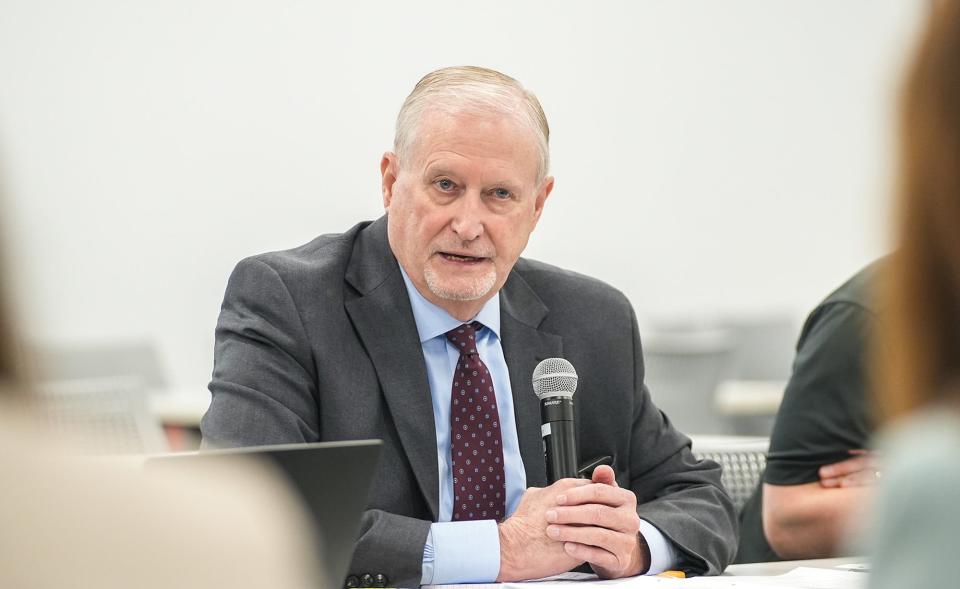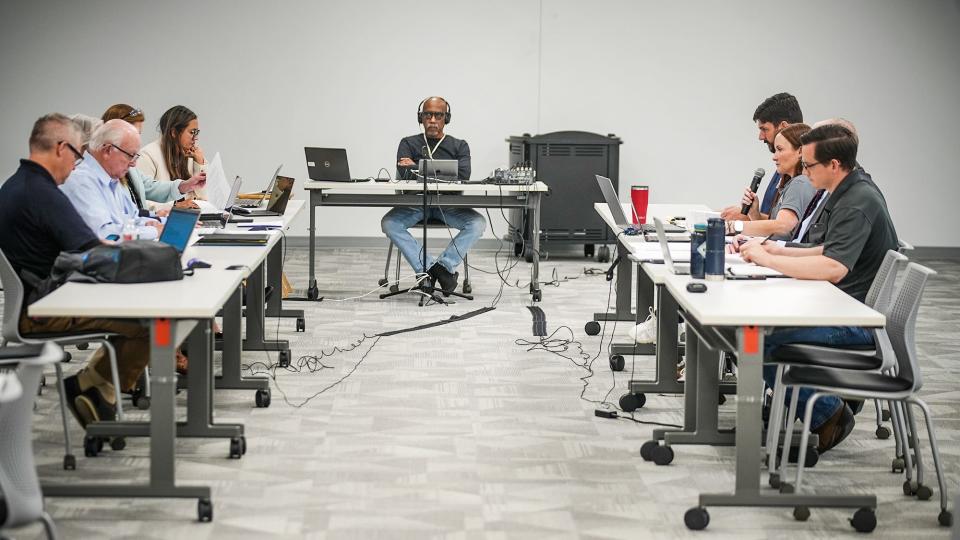Back at the table, Austin police union, city differ on police oversight implementation
After the first day of contract negotiations between the city and the union representing Austin police officers, one thing remains clear: Neither party seems willing to budge on issues related to implementing the voter-approved police oversight ordinance.
The Austin Police Oversight Act, formerly known as Proposition A, was overwhelmingly approved by voters last May to increase police oversight in the city. The Austin Police Association held steadfast on Wednesday that it was “not our objective to be in compliance with Prop A,” lead negotiator Ron DeLord said.
The city’s lead negotiator, Lowell Denton, essentially said a contract would not be ratified unless it was in accordance with the police oversight ordinance.
A major point of contention on both sides has been the use of what's called a "G-file." This is a secret personnel file that some police and fire departments keep in Texas under state law. The Austin Police Oversight Act calls for doing away with this file, but the union says it would be against state law for the city to force the Austin Police Department to do so.

Austin Police Association President Michael Bullock has previously told the American-Statesman he's concerned that doing away with the file would allow unfounded complaints against officers to be made public and could ultimately harm members.
The city said that a contract between the two cannot include a G-file. Additionally, Equity Action, the organization that got the Austin Police Oversight Act on the ballot last year, filed a lawsuit in December stating that the city has not moved fast enough to implement the ordinance. The G-file was one of the issues cited in the lawsuit.
A hearing is set for April 9 that will likely determine the future of the G-file and its use in Austin.
More: Lawsuit alleges Austin needs to do more to implement Prop A, police oversight referendum
While the conversations became tense and made it seem like bargaining could stall between the two sides, Bullock said after negotiations ended that he remained optimistic that there’s a “path forward” to a contract.
Getting back to the table hasn’t been an easy process, though. Last year, Mayor Kirk Watson and the City Council rejected a long-term contract that had been agreed upon by the union and then-City Manager Spencer Cronk. The reason given was that voters should be allowed the opportunity to decide whether they wanted to increase police oversight.
More: No contract puts Austin police at 'disadvantage' in recruiting efforts as vacancies persist
But unlike previous times, the city will no longer make drafts of the contract available to the public after the police union asked and the city agreed to these terms.
Versions of the contract language will no longer be put up on a screen during the negotiations. On Wednesday, both sides read from articles already shared with each other.

Bullock said he does not believe this affects the transparency of the process. He noted that state law does not require them to make the drafts available.
Denton said making this change was “not the city’s preference” and that city leaders would ask the union to reconsider making the draft available once they’ve "set the tone of bargaining." In a statement to the Statesman, interim Assistant City Manager Bruce Mills said the contract "will be available to the public prior to any council action."
"There are too many unknown factors to definitively say at this time how far in advance but it will be as much as is reasonable and practical," Mills said in the statement.
This stance by the city seems to differ from what was said in the city's Monday news release, which said that state law would only allow it to be made public "after the agreement is ratified by the City Council."
Additionally, previous bargaining sessions prohibited the union from speaking with City Council members and other elected officials. But this year, the union asked that it be allowed, and the city agreed to those terms.

Bullock said this was done since the previous two contracts — one in 2017 and the other last year — were shot down by council members. The goal now is to ensure there are no disagreements once the city and union come to an agreement on a possible contract.
More: Will the Austin police union and city reach a long-term contract this year? What we know.
Ultimately, a contract is seen as key by both city leaders and Bullock to helping with retention and recruitment efforts of officers at a time when the Police Department continues to face a staffing crisis with over 340 officer vacancies.
“A lot of this is going to be us trying to work together to get to the solution that we think is possible," Bullock said. "We may differ on how that path comes about, but I do believe there's a way that this can all be accomplished."
Either way, for advocates such as Kathy Mitchell, who was in attendance Wednesday and has been at the past few bargaining sessions, the changes reflect a concern about whether the contract will comply with the Austin Police Oversight Act.
Mitchell, a policy adviser for Equity Action, told the Statesman that while the city said it would ensure the contract complies with the ordinance, she’s concerned that negotiations could change that.
“Both sides have laid out their starting position,” Mitchell said. “And a negotiation is a move to the center, which means that every step on the city side is a move back or away or towards the (Austin Police Association) position.”
This article originally appeared on Austin American-Statesman: Austin police union, city differ on oversight at contract negotiations

